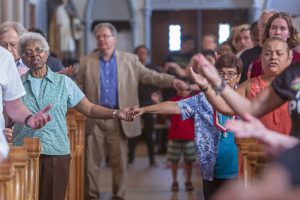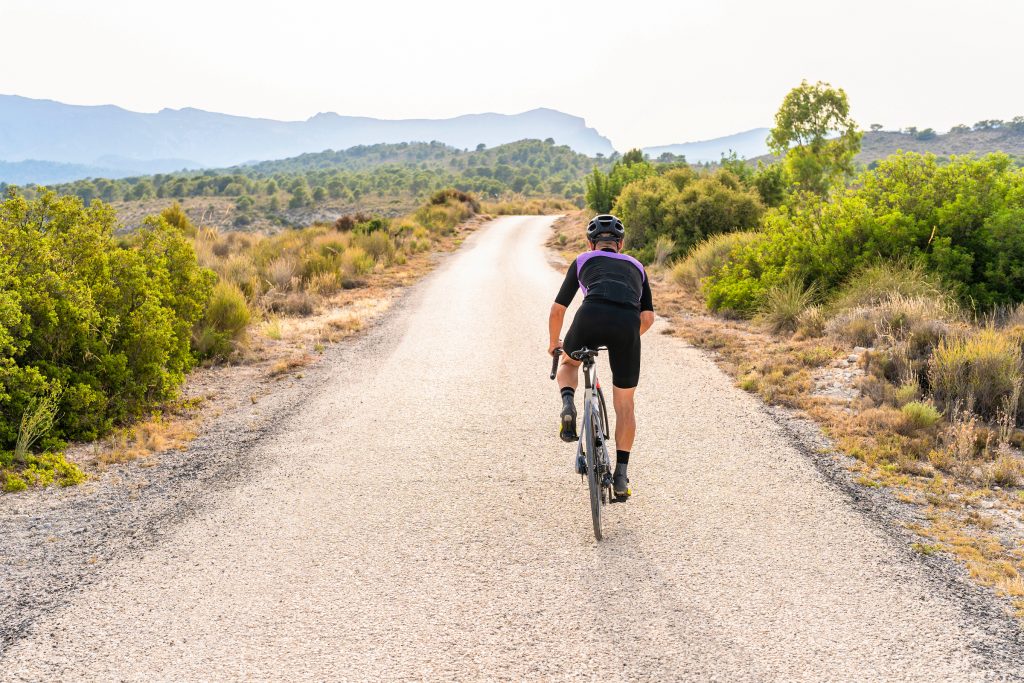Pope Francis once cited an African proverb: “If you want to go fast, go alone; if you want to go far, go with others.”
This may hold true for pedestrians, but when it comes to bicycling, I’ve found that, whether you wanted to go fast or far, it helps to ride with others.
Unfortunately, I’ve become a solitary cyclist, riding river trails and country roads alone. To go faster and farther, I’d enjoy riding with others, but as of yet I’ve not found a group that pedals at my pace. Either I’m too slow or occasionally too fast to make it an enjoyable group ride. Yet I know that on those occasions when I do link up with another rider who is a bit faster than me, I get better. Maybe it’s the competition, maybe it’s the fellowship. In either case, I keep looking for a community to ride with.
A lot of us are looking for community these days. Social scientists have been chronicling how many of us go it alone on the trails of life, or with a relatively few number of friends. The statistics about loneliness are well known: We are a mobile society, families are spread out and friendships are sometimes dependent on mutual concerns or needs of the moment. We friend up with the parents of kids the same age as ours, but those friendships may last only as long as our kids are friends. We move for jobs or divorce or weather. We are individuals on the move, but at a cost.
At the same time, we have superficial contact in many ways with a broad group of people through social media. We “friend” people but we aren’t friends with people in a deep, community building sense. In the United States, we use the word “friends” to denominate a wide variety of acquaintances, but what we might think of as friendship is often transactional and relatively shallow.

In looking at some of the madness all around us these days — from hate groups to conspiracy hunters to identity group cloisters — I keep seeing lost human beings in search of community, identity, and purpose. If these can no longer be found in society’s traditional institutions, then they might be found in the Proud Boys, Antifa, or QAnon.
But a lot of us are a bit lost, and people are searching for what religious faith should offer everyone: Community. Identity. Purpose. And yet religious practice is declining across the board, and certainly in Catholic circles. Initiation in the sacraments of initiation is down. There are fewer Catholic marriages and Catholic funerals. Numbers were dropping before COVID, but have gotten worse since then. Bishops and pastors are worried as church attendance in most places has not rebounded to pre-COVID numbers.
We may not know all the reasons for this statistical stagnation, yet it seems strange that Catholicism, which by its very nature should offer community, identity, and purpose, seems to struggle to attract people hungering for that.
Catholic bishops have expressed great concern about polls suggesting there is a lack of understanding of and appreciation for the Eucharist: If we only understood this “source and summit” of our faith, we would be more committed.
But I wonder if perhaps our crisis is at heart not that we don’t believe in the body of Christ present in the Eucharist. Rather, we don’t believe that we and our fellow believers are together members of the body of Christ. Maybe the sacrament we don’t understand is baptism.
Near my house is an Eritrean Orthodox Church. Every Sunday they stream to their liturgy wearing white linen garments reminiscent of a baptismal robe. No fancy dresses visible. Not smart suits. The simple white garments are a visual sign of community.
Look at our fragmentation as a Church — Latin Mass Catholics and social justice Catholics and Marian Catholics and charismatics. Pro-life Catholics and pro-immigrant Catholics. Democrat Catholics and Republican Catholics. Hispanic Catholics and convert Catholics. And lots of relatively disengaged Catholics, some of whom are edging toward the door.
Are we one body? We are many parts, of course, and all these different ways of seeking to serve and follow Christ are not bad in and of themselves. But if we can only see ourselves as belonging to this particular group or avoiding that particular group, what is the unity we are celebrating each week at Mass?
When we enter our parish church each Sunday, do we feel as if we are coming home? Are we joining our brothers and sisters? Do we have a sense of the “sacramental bond of unity” in Christ? And if so, is it obvious to others? Do they see a living community, or a community barely alive?
Are too many of us walking our paths alone?

